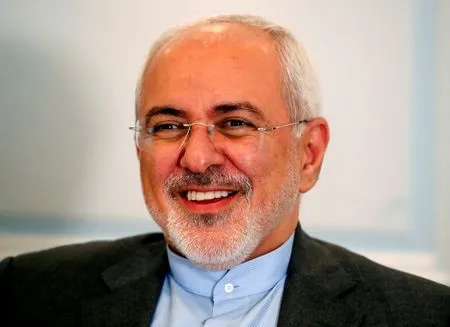Theo đó, Bộ Ngân khố Mỹ vừa rồi đã xử phạt hai ngân hàng Iran và một số công ty được cho là dính líu đến Lực lượng bảo vệ cách mạng Hồi giáo (Basij) Iran.

Bộ trưởng Ngoại giao Iran Javad Zarif. Ảnh: Reuters
Theo lời Bộ trưởng Javad Zarif, các lệnh trừng phạt mới của Mỹ vi phạm hai điều của ICJ đó là: không cản trở giao dịch nhân đạo và không làm trầm trọng thêm tranh chấp.
Căng thẳng giữa Iran và Mỹ tăng cao sau khi Tổng thống Donald Trump quyết định rút khỏi thỏa thuận hạt nhân với Iran hồi tháng 5/2018 và tái lập lệnh trừng phạt dành cho Iran vào tháng 8/2018.
Quan chức Mỹ cho biết một loạt lệnh trừng phạt mới nhằm vào công nghiệp dầu hỏa của Iran sẽ được triển khai vào ngày 4/11 tới đây.
Zarif nói trên trang Twitter của mình rằng có vẻ như việc ưa thích trừng phạt của Mỹ đã ngoài tầm kiểm soát khi nêu ra rằng một trong số các ngân hàng bị khép lệnh trừng phạt đóng vai trò quan trọng trong việc nhập khẩu lương thực và thuốc men và không liên quan đến lực lượng dân quân.
Trước đó, người phát ngôn Bộ Ngoại giao Iran Bahram Qassemi cũng đã lên tiếng trách việc Mỹ đã “hằn học” khi áp đặt các lệnh trừng phạt mới này. Việc gia hạn tái áp dụng lệnh trừng phạt có thể nhấn chìm tình hình xuất khẩu dầu và các hàng hóa khác của Iran, đẩy đồng tiền của Iran và các ngân hàng nước này vào tình trạng khó khăn.
Với tình hình kinh tế hiện tại ở Iran, đã có hàng loạt cuộc biểu tình nổ ra ở hơn 80 thành phố, và có khuynh hướng dẫn đến bạo lực.
Latest U.S. sanctions show disregard for human rights of all Iranians: foreign minister
(Reuters) - The United States' latest economic sanctions against Iran display a disregard for the human rights of all Iranians, Foreign Minister Mohammad Javad Zarif said on Wednesday.
The U.S. Treasury on Tuesday sanctioned two Iranian banks and a handful of companies it says are linked to Iran's Basij militia.
"Latest US sanctions violate 2 ICJ orders: to not impede humanitarian trade & to not aggravate the dispute. Utter disregard for rule of law & human rights of an entire people. US outlaw regime's hostility toward Iranians heightened by addiction to sanctions," Zarif said in a Twitter post.
By ICJ, Zarif was referring to the International Court of Justice.
Tensions between Iran and the United States rose after U.S. President Donald Trump withdrew from a multilateral agreement on Iran's nuclear programme in May and reimposed sanctions in August.
U.S. officials have said a new set of sanctions targeting Iran's oil industry, will be imposed on Nov. 4.
"U.S. addiction to sanctions is out of control," Zarif also wrote on Twitter.
He said in the tweet that one of the banks was vital for food and medicine imports and seemed to suggest it was not close to the militia - a volunteer force mainly involved in Iran's internal security operations - without naming it directly.
"Iranian private bank key to food/medicine import is designated because of alleged EIGHT degrees of separation w/ another arbitrary target. In comparison, all humans on planet are connected by SIX degrees of separation. You do the math," Zarif said on Twitter.
Earlier, Foreign Ministry spokesman Bahram Qassemi railed against the "spitefulness" of the U.S. government in imposing the sanctions, according to the Islamic Republic News Agency.
Renewed sanctions could shrink Iran's exports of oil and other goods, leaving the rial currency more volatile and banks facing financial difficulties.
Protests linked to the economic situation in Iran erupted last December, spreading to more than 80 cities.
Sporadic protests, led by truck drivers, farmers and merchants, have continued since then and have occasionally resulted in violent confrontations with security forces.

